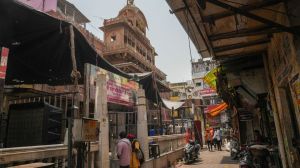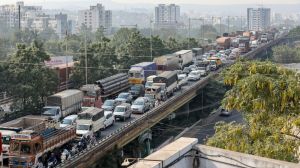Vulnerability of nations
In June this year, the popular search engine Google launched Google Earth, a feature that allowed Internet users to download maps and pictur...

In June this year, the popular search engine Google launched Google Earth, a feature that allowed Internet users to download maps and pictures of locations and buildings across the world, including sensitive installations like air force bases, nuclear plants etc. The maps and images with high resolution were linked to the search engine and so one could do a comprehensive search. Google offers a free version, as also two annual paid versions. There are also a couple of other companies who offer such high resolution images for money.
While these features could be good for some people, they raise privacy and security concerns for many. Even nations are alarmed at the security implications and countries like South Korea, Thailand, Australia and the Netherlands have raised an alarm over the matter. In India, too, President Kalam in his lecture at the National Police Academy dwelt on the issue and asked the police officers to find ways to deal with the situation. The fact that Rashtrapati Bhawan, Parliament building, the BARC facility at Trombay, and various power plants are easily available with quality resolution is worrisome considering that India is a major target of many terrorist groups.
There are recent reports of the Al Qaeda and other militants using online tools extensively for their sinister activities. Today the global fight against terrorism has to be carried to cyberspace. The issue must be dealt with by considering a few factors. Firstly, the availability of pictures on sensitive installations and locations on the Internet has to be controlled. Although blocking the Google Earth website is possible both legally and technologically in India, it will not be a fruitful exercise because the website and its content will be available in other countries. Most terrorist organisations have a coordinated approach and could easily make available information to the groups acting against India.
So the best possible solution could be working out a consensus among nations to keep all critical infrastructure out of the website in a time bound manner. This challenge is best addressed in the second phase of the World Summit on the Information Society next month at Tunisia where much of the discussions would take place on international Internet governance. At the same time, nations need to define and identify their critical infrastructure.
While Google is expanding drastically in many areas of Internet space and trying to outwit its strong rivals in Microsoft, it has to understand the consequences of its action where the easy availability of such sensitive content could cause serious catastrophes. Its responsibility must be made more explicit in terms of marrying technology harmoniously with societal and national concerns about safety of cyberspace and the globe.
- 01
- 02
- 03
- 04
- 05































